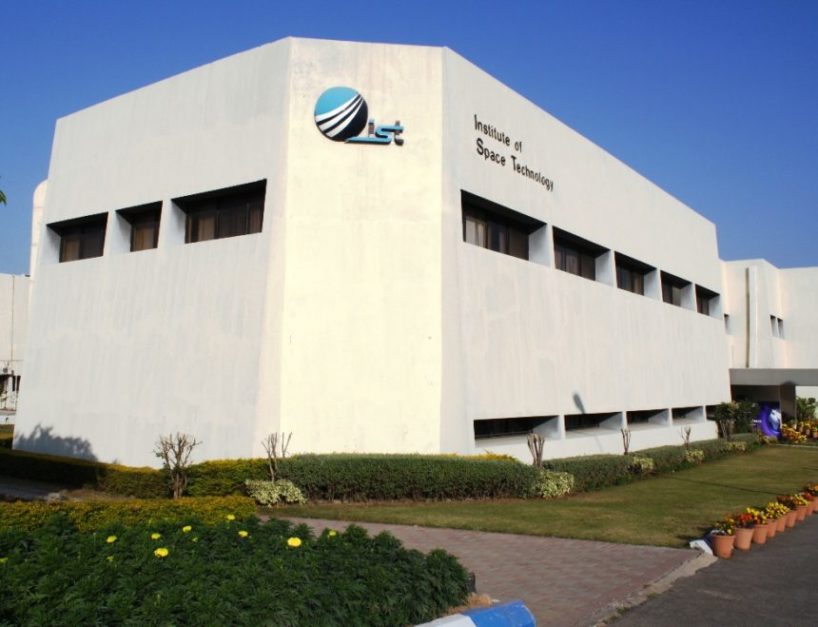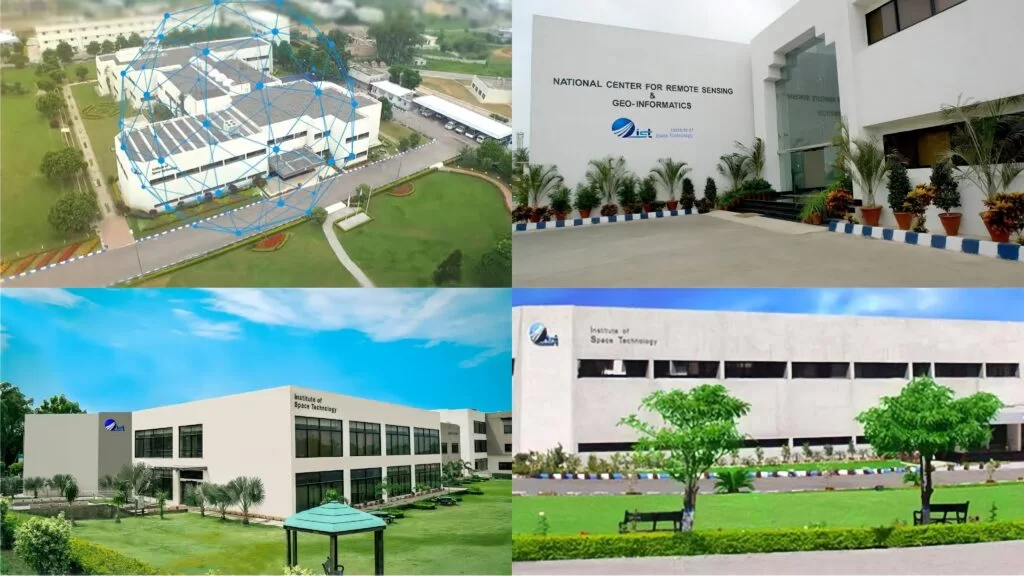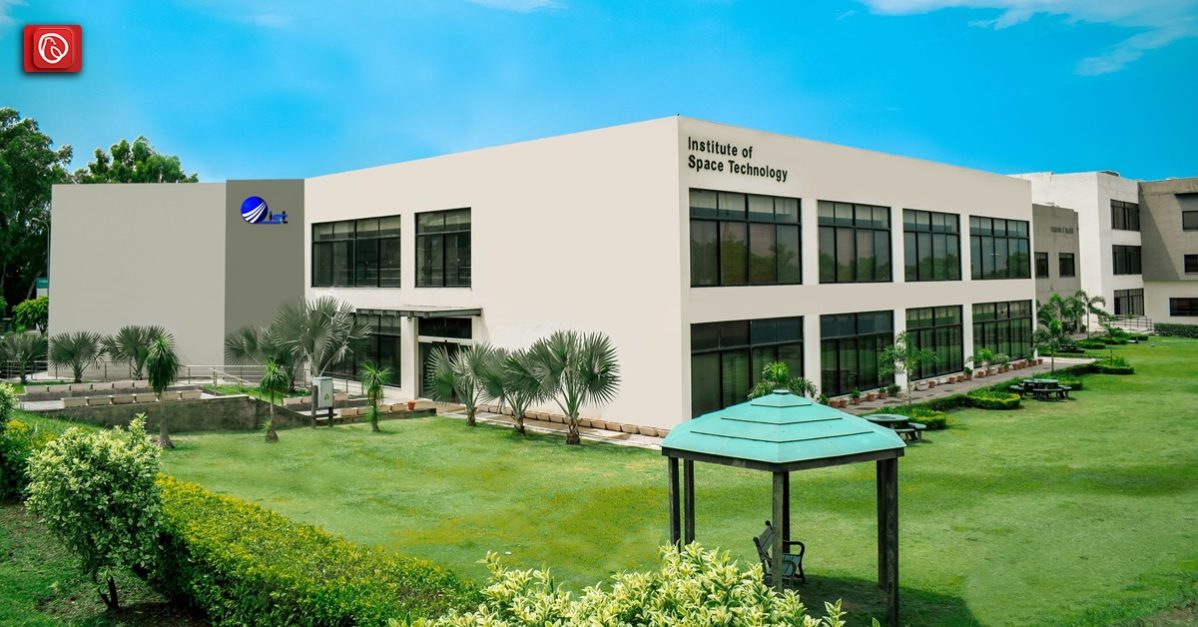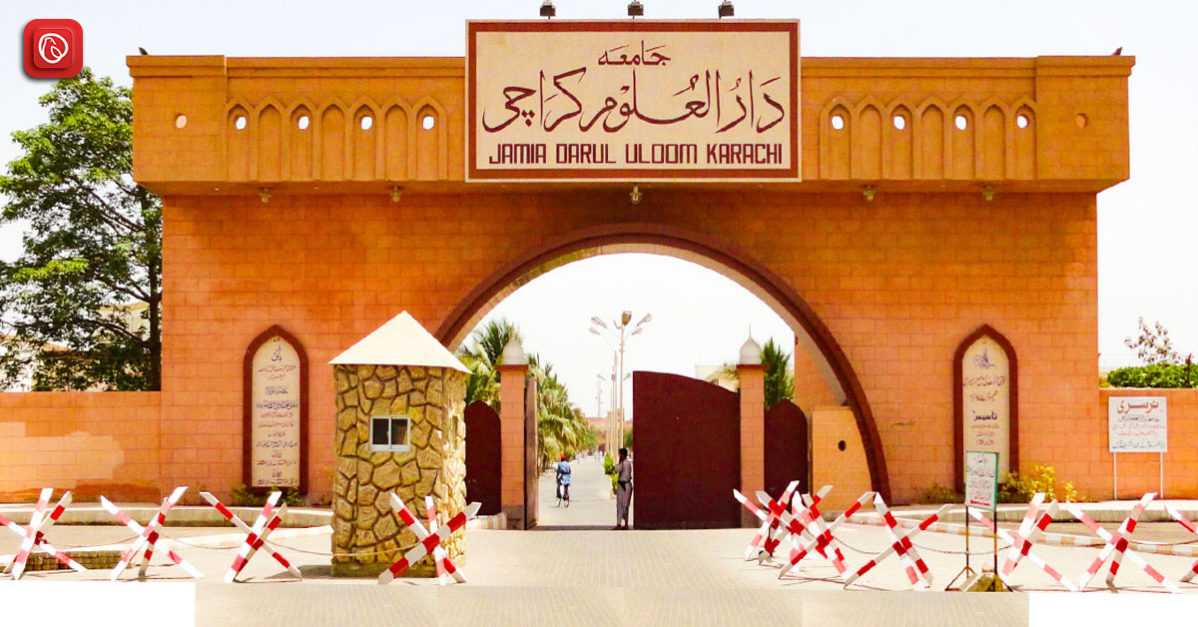If you want to pursue a career in space science and engineering, you might want to consider applying to the Institute of Space Technology (IST) in Islamabad, Pakistan. It is a public university established in 2002 to provide specialised education and research in astronomy, aerospace engineering, and astronautics.
IST is affiliated with the Pakistan National Space Agency (PNSA) and collaborates with international universities and organizations such as Beihang University and the University of Surrey. It is also the only university in Pakistan that has launched a satellite (iCUBE-1) into the lower Earth orbit.
Graana.com will give you an overview of IST, its academic programs, its facilities, its achievements, and its events and activities
History of IST Islamabad

The Institute of Space Technology (IST) is a public university in Islamabad that specialises in aerospace engineering and related fields. It was established in 2002 by the Pakistan Space and Upper Atmosphere Research Commission (SUPARCO), the national space agency of Pakistan.
IST offers undergraduate and graduate programs in various space science and technology disciplines, such as satellite engineering, remote sensing and geographic information systems, materials science and engineering, aerospace engineering, and space flight dynamics.
It also conducts research and development projects with SUPARCO and other national and international organizations. IST aims to produce highly skilled professionals who can contribute to advancing space technology in Pakistan and the world.
Academic Programs
IST offers various undergraduate and graduate degrees in various space science and engineering disciplines. The regular duration of BS and MS/MPhil degree programs is four and two years, respectively. The Ph.D. programs are offered full-time or part-time, depending on the availability of supervisors and resources.
| Discipline | Degree Program | ||
| BS / BE | MS / M Phil | PhD. | |
| Aerospace Engineering | Yes | Yes | |
| Avionics Engineering | |||
| Electrical Engineering | Yes | Yes | |
| Materials Science & Engineering | |||
| Mechanical Engineering | |||
| Computer Science | |||
| Space Science | Yes | ||
| Mathematics | |||
| Physics | |||
Departments
At present, the institute holds the following Departments:
- Aeronautics & Astronautics
- Electrical Engineering
- Applied Mathematics & Statistics
- Materials Science & Engineering
- Mechanical Engineering
- Space Science
- National Centre for Remote-Sensing & Geo-Informatics
- Humanities & Sciences
- Avionics Engineering
Each discipline has its own department responsible for designing and delivering the curriculum, conducting research, and providing academic guidance to the students. The departments have qualified and experienced faculty members with expertise in various space science and engineering areas.
The faculty members are also involved in national and international projects and collaborations with other universities and organisations.
The curriculum of each degree program is designed to meet international standards and to equip the students with the theoretical knowledge and practical skills required for their future careers.
The courses cover topics such as space dynamics, orbital mechanics, spacecraft design, propulsion systems, control systems, communication systems, remote sensing, satellite imagery, materials characterization, nanotechnology, artificial intelligence, machine learning, data science, numerical analysis, differential equations, quantum mechanics, relativity, cosmology, and more.
Fee Structure at IST Islamabad
Following is the list of fee structures of different programs at IST Islamabad.
Engineering Programs
Aerospace Engineering, Electrical Engineering, Avionics Engineering, Mechanical Engineering and Materials Science & Engineering
| One Time Charges | Local Fee Structure (Pak Rs) |
Intl Fee Structure (US $) |
| Admission Fee | 30,000 | 2,000 |
| Endowment Fund | 5,000 | 250 |
| Library Development Fund | 5,000 | 250 |
| Total Time Charges | 40,000 | 2,500 |
| Per Semester Charges | (Pak Rs) | (US $) |
| Tuition Fee | 108,900 | 4,235 |
| Service Charges | 7,000 | 250 |
| Safe/ Smart Campus Charges | 2,000 | 250 |
| Total Per Semester Charges | 117,900 | 4,735 |
Computer Science
| One Time Charges | Local Fee Structure (Pak Rs) |
Intl Fee Structure (US $) |
| Admission Fee | 30,000 | 2,000 |
| Endowment Fund | 5,000 | 250 |
| Library Development Fund | 5,000 | 250 |
| Total Time Charges | 40,000 | 2,500 |
| Per Semester Charges | (Pak Rs) | (US $) |
| Tuition Fee | 91,960 | 3,812 |
| Service Charges | 7,000 | 250 |
| Safe/ Smart Campus Charges | 2,000 | 250 |
| Total Per Semester Charges | 100,960 | 4,312 |
Space Science
| One Time Charges | Local Fee Structure (Pak Rs) |
Intl Fee Structure (US $) |
| Admission Fee | 30,000 | 2,000 |
| Endowment Fund | 5,000 | 250 |
| Library Development Fund | 5,000 | 250 |
| Total Time Charges | 40,000 | 2,500 |
| Per Semester Charges | (Pak Rs) | (US $) |
| Tuition Fee | 91,960 | 3,812 |
| Service Charges | 7,000 | 250 |
| Safe/ Smart Campus Charges | 2,000 | 250 |
| Total Per Semester Charges | 100,960 | 4,312 |
Physics
| One Time Charges | Local Fee Structure (Pak Rs) |
Intl Fee Structure (US $) |
| Admission Fee | 30,000 | 2,000 |
| Endowment Fund | 5,000 | 250 |
| Library Development Fund | 5,000 | 250 |
| Total Time Charges | 40,000 | 2,500 |
| Per Semester Charges | (Pak Rs) | (US $) |
| Tuition Fee | 60,500 | 2,517 |
| Service Charges | 7,000 | 250 |
| Safe/ Smart Campus Charges | 2,000 | 250 |
| Total Per Semester Charges | 69,500 | 3,017 |
Mathematics
| One Time Charges | Local Fee Structure (Pak Rs) |
Intl Fee Structure (US $) |
| Admission Fee | 30,000 | 2,000 |
| Endowment Fund | 5,000 | 250 |
| Library Development Fund | 5,000 | 250 |
| Total Time Charges | 40,000 | 2,500 |
| Per Semester Charges | (Pak Rs) | (US $) |
| Tuition Fee | 60,500 | 2,517 |
| Service Charges | 7,000 | 250 |
| Safe/ Smart Campus Charges | 2,000 | 250 |
| Total Per Semester Charges | 69,500 | 3,017 |
Achievements
IST has made significant contributions to space technology since its inception. The institute has designed and built several satellites, including the PAKSAT-1R, Pakistan’s largest and most advanced communication satellite.
IST has also designed and built the Remote Sensing Satellite, which is used for remote sensing applications, such as land use and land cover mapping, disaster management, and environmental monitoring.
The institute has also made significant contributions to aerospace engineering, including designing and developing the Reusable Launch Vehicle-Technology Demonstrator (RLV-TD).
Facilities at IST

Institute of Space Technology (IST) has a spacious campus that covers an area of 573 acres on the outskirts of Islamabad. The campus has a serene and scenic environment that fosters learning and innovation. The infrastructure and facilities cater to the academic and non-academic needs of students. Some of these facilities include:
- A satellite ground station that can communicate with various satellites and receive data for various applications.
- A space applications research centre that develops and tests space systems and payloads for scientific and commercial purposes.
- A wind tunnel that can simulate different aerodynamic conditions and test models of aircraft and rockets.
- A propulsion lab that can design and test different types of rocket engines and thrusters.
- A space weather lab that can monitor and analyse the effects of solar activity on the Earth’s atmosphere and magnetosphere.
- A space observatory that can observe and study celestial objects and phenomena using optical and radio telescopes.
These are just some of the facilities that IST offers to its students and faculty. IST is a place where you can learn from the best, work on challenging projects, and explore the wonders of the universe.
IST also has a vibrant campus life that fosters academic excellence, innovation, creativity, and social responsibility. It also organises various events and activities that promote awareness and interest in space science and technology among the general public.
Conclusion
Institute of Space Technology (IST) Islamabad is one of the leading institutions in space technology in Pakistan and the region. It is HEC recognised University.
IST has made significant contributions to space technology, including the design and development of several satellites and aerospace systems. The institute’s future looks bright, and it is expected to continue to make significant contributions to the field of space technology. Get to know NIH.
FAQ’s
Q: Where is IST Islamabad located?
A: It is located in Islamabad Expressway, Sector H DHA Phase II, Islamabad.
Q: Is IST a public or private university?
A: IST is a public research university.
Q: Is IST accredited?
A: Yes, IST is accredited by the Higher Education Commission of Pakistan and other relevant accreditation bodies.
Q: What are the admission requirements for IST?
A: Admission requirements vary by program but generally include a high school diploma or equivalent, entrance exam scores, and a certain level of proficiency in English.
Q: What is the campus like at IST?
A: IST’s campus is located in a suburban area of Islamabad and features modern facilities, including lecture halls, research labs, a library, and student housing.
Q: Does IST offer scholarships?
A: Yes, IST offers scholarships and financial aid to eligible students. Information about scholarships can be found on the university’s website.
Q: What research opportunities are available at IST?
A: IST is committed to research in various areas related to space science and technology. Students and faculty have access to state-of-the-art research facilities and equipment.
Q: What career opportunities are available to IST graduates?
A: IST graduates are prepared for careers in various fields related to space science and technology, including aerospace engineering, remote sensing, and space exploration. They may also pursue advanced studies in these areas.
Follow Graana.com for more related information.
Read More




